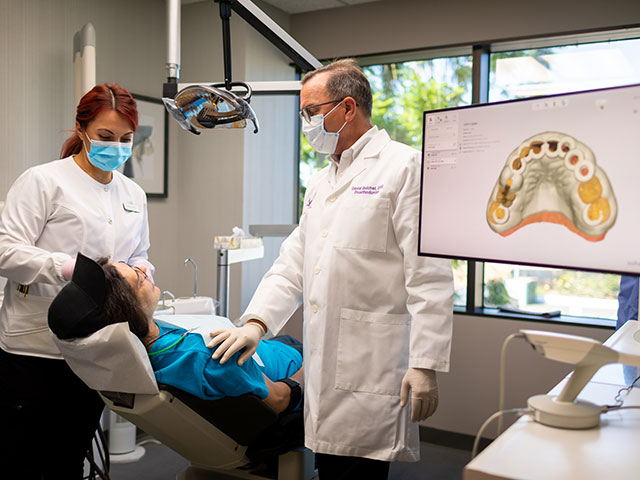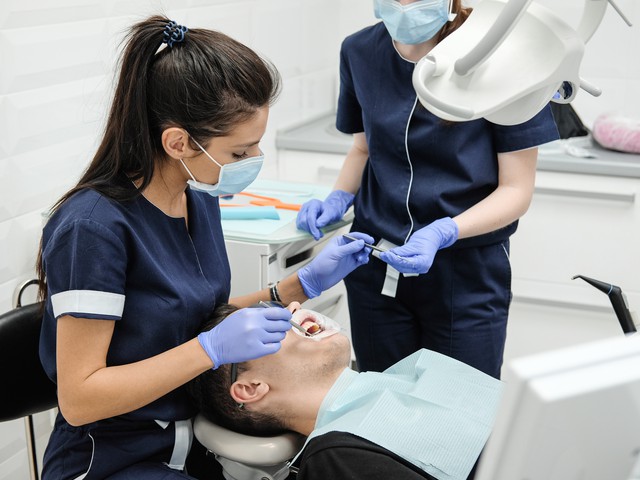When it comes to maintaining overall health, many people often overlook the importance of dental care. We tend to think of dental hygiene as something that is just about brushing our teeth and flossing daily. However, regular dental checkups are equally crucial in ensuring not only the health of our teeth but also our overall well-being.
In this blog post, we will explore why regular dental checkups are so important, what they involve, and how they can prevent a wide range of oral health issues that could have serious consequences if left unchecked.
Why Regular Dental Checkups Matter
Dental checkups are about more than just cleaning your teeth. They provide an opportunity for your dentist to assess the overall health of your mouth, gums, and teeth. During these visits, a dentist can spot early signs of potential issues such as cavities, gum disease, oral cancer, and even heart disease or diabetes. While brushing and flossing daily are essential, professional checkups help catch problems that are not always visible to the naked eye or that develop beneath the surface of your teeth and gums.
Preventing Cavities and Tooth Decay
Cavities are one of the most common oral health issues that people face. They develop when plaque—a sticky film of bacteria—forms on your teeth. If left untreated, plaque hardens into tartar, which can lead to tooth decay. While brushing and flossing can help remove plaque, they may not always be enough, especially in hard-to-reach areas. Regular dental checkups and professional cleanings remove plaque and tartar buildup, preventing cavities before they become severe enough to require costly treatments like fillings or crowns.
Early Detection of Gum Disease
Gum disease, also known as periodontal disease, is a condition that affects the gums and the structures that support your teeth. It starts as gingivitis (a mild form of gum disease) and can progress to periodontitis if not addressed. Symptoms of gum disease include red, swollen gums, bleeding while brushing or flossing, and bad breath. However, gum disease can often develop without noticeable symptoms, making it important for a dentist to examine the condition of your gums regularly. Early detection of gum disease can lead to simple treatments that can help reverse the condition before it becomes more serious and causes tooth loss.
Oral Cancer Screening
Oral cancer is a serious health issue that is often overlooked. The signs of oral cancer—such as persistent sores, lumps, or unexplained bleeding in the mouth—can be subtle and easy to miss. However, during a dental checkup, your dentist performs an oral cancer screening by visually inspecting your mouth and throat and feeling for abnormal lumps. This early detection is crucial, as oral cancer can be far more treatable when caught in its early stages. If detected, your dentist may refer you to a specialist for further testing or treatment.
Keeping Bad Habits in Check
During regular dental visits, your dentist can also provide valuable insight into habits that may be damaging your teeth. This includes things like grinding your teeth (bruxism), excessive consumption of sugary or acidic foods, and even smoking. If these habits are not addressed, they can lead to long-term damage such as tooth wear, enamel erosion, and an increased risk of cavities. By identifying these behaviors early, your dentist can help you develop strategies to mitigate their negative effects and improve your overall oral health.
The Role of Professional Cleaning
Even with diligent brushing and flossing, it’s hard to remove all the plaque and tartar that accumulates on your teeth over time. A dental hygienist performs a professional cleaning during your checkup, which is crucial in keeping your teeth and gums healthy. The process involves scaling your teeth to remove plaque and tartar and polishing your teeth to make them smoother, which makes it harder for plaque to stick in the future.
Professional cleanings also help prevent gum disease, as removing the plaque and tartar buildup reduces inflammation and irritation in the gums. It’s recommended to have a professional cleaning every six months, or as advised by your dentist, to keep your smile healthy and bright.

How Regular Checkups Contribute to Your Overall Health
Oral health is closely linked to your overall health. In fact, studies have shown that gum disease and other dental issues can contribute to the development of chronic conditions such as heart disease, diabetes, and stroke. Bacteria from infected gums can enter the bloodstream, causing inflammation and increasing the risk of systemic health problems. By maintaining regular dental checkups, you reduce the chances of developing serious health conditions by preventing oral infections that could spread throughout your body.
Additionally, having healthy teeth and gums can also improve your mental and emotional well-being. A healthy smile boosts confidence, helps with speech and chewing, and supports a positive self-image. On the other hand, dental pain or the embarrassment of oral health issues can significantly affect your quality of life.
In fact, according to a report on HNMagazine, maintaining your overall health—including oral health—can be a critical factor in ensuring your long-term wellness, especially for homeowners looking to invest in properties. A healthy body is a foundation for managing the stresses and responsibilities that come with owning real estate.
What to Expect During a Dental Checkup
A typical dental checkup includes a few key components:
- Medical History Review: Your dentist will ask about your medical history, current medications, and any changes in your overall health. This is important because certain health conditions or medications can impact your oral health.
- Examination: The dentist will examine your teeth, gums, and mouth for signs of issues such as cavities, gum disease, oral cancer, or other abnormalities.
- X-Rays: Depending on your age, oral health history, and risk factors, your dentist may take X-rays to get a closer look at your teeth and jawbone. This helps detect issues such as cavities between teeth, bone loss, or impacted teeth.
- Cleaning: A dental hygienist will clean your teeth by removing plaque and tartar buildup, followed by polishing your teeth to give them a smooth, shiny appearance.
- Treatment Plan: If any issues are detected, your dentist will discuss a treatment plan with you. This might include fillings, root canals, or referrals to a specialist.
How Often Should You Have a Dental Checkup?
The American Dental Association (ADA) recommends visiting the dentist at least once every six months for a routine checkup. However, if you have specific health conditions, are prone to dental issues like cavities or gum disease, or wear braces or dentures, your dentist may recommend more frequent visits.
It’s important to follow your dentist’s recommendations for checkups to ensure that any issues are addressed early, and your oral health remains in top shape.
Conclusion
Regular dental checkups are vital in maintaining optimal oral health and preventing a wide range of dental and health problems. They allow your dentist to detect issues early, provide preventive care, and give you the guidance you need to maintain good oral hygiene at home. By committing to routine visits, you’re investing not only in a bright smile but also in your overall well-being. So, make your dental checkups a priority—your future self will thank you!


